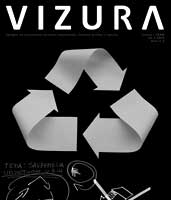„U mojim djelima sve lebdi, sve je u svijetu letača“ - Interview Franjo Likar
Interview Franjo Likar
Author(s): Likar Franjo, Aida Abadžić HodžićSubject(s): Cultural Essay, Political Essay, Societal Essay
Published by: Gradska galerija Collegium artisticum
Summary/Abstract: In his monograph, Franjo Likar (1928) decided to tell the story of his life by telling the story of his ten studios – from the first, in Morić’s Caravanserai in Sarajevo to the ones he uses now, in Dalmatian village Brela and in Klagenfurt, Austria. If one follows this story carefully, then he would notice that Franjo Likar refers mainly to people, places, atmosphere and spiritual states that have shaped him in those periods. The immediate motive for this interview with Franjo Likar done in his marvellous studio-house in Brela, where with his wife Heide, he was waiting for the month of February, the most interesting month at sea, as he puts it, was his recently published monograph (Sarajevo, 2007). However, the true reason for this encounter with Likar lies in the fact that he is always interesting, unexpected and modern. Since our entire history is nothing but a tale of „subsequent discoveries“, the story about his significance and his role in the artistic and cultural life in BiH in the second half of the 20th century remains to be told yet, with a certain temporal distance, just like it remains for us to recognise those many things he had anticipated that could not possibly be fully recognised and assessed in their own time. This artist, with his constant playfulness, consistently reminds us of Johan Huizinga’s thesis about those somewhat mysterious and exceptional places where one plays, removed from ordinary life and taken to a temporary sphere of activity that has its own rules and uncertainties and haphazard nature Likar embraces without hesitation. About himself, he says that he feels as “being on a part-time assignment, in between two journeys”. Curiosity, bewilderment and doubt are what he invokes as his eternal muses. Inadequacies and shortcomings of memory he recognises as an advantage. He tries to grasp life in its fullness: even when he contemplates the otherworldly, he never gives up its worldly dimension, always bridging the gap between the extremes – between “high” and “low” art. Thus, pieces of a coloured fabric and pieces of porcelain figures found at some flea markets can be used to make new and unexpected things, such as national flags or sacral boxes. Likar dismantles his own fears from transience and mortality and then assembles them into a transcendental dimension of eroticisms. Franjo Likar,both as a man and as an artist, listens to his own words attentively and responsibly - in constant quest for their potential meanings.
Journal: VIZURA - Časopis za savremene vizualne umjetnosti, likovnu kritiku i teoriju
- Issue Year: 2008
- Issue No: 01+02
- Page Range: 60-67
- Page Count: 8
- Language: Bosnian

